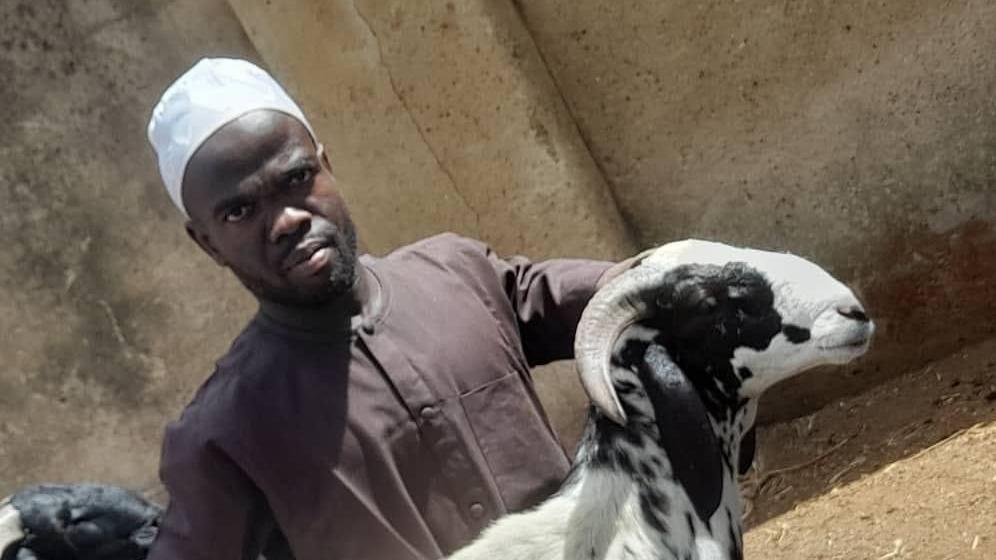“I have actually butchered a ram every year beginning with 1976 however this year I can’t, I simply can’t.”
Like lots of other Muslims in Nigeria, 78-year-old Mallam Kabiru Tudun Wada is not commemorating Eid al-Adha as he generally would because of the cost-of-living crisis.
Muslims worldwide generally massacre a ram or another animal on Eid al-Adha, in memory of the prophet Ibrahim’s determination to compromise his own child when God bought him to.
The meat is utilized to prepare a substantial banquet for the whole household, while buddies and neighbours go to each other and consume the food each household has actually prepared.
Clerics likewise advise that a few of the meat is dispersed to the bad and clingy.
“In years passed I might manage a minimum of one ram however things have actually never ever been tighter,” Mr Wada informed the BBC in the city of Kano, the biggest city in northern Nigeria, where the large bulk of individuals are Muslim.
Nigeria is presently experiencing its worst recession in a generation, resulting in extensive challenge and anger.
Yearly inflation – the typical rate at which costs increase – is now over 30%, the greatest figure in almost 3 years. The expense of food has actually increased much more – by 50%.
A typical ram now costs 100,000 naira (£50; $63) which is beyond the reach of lots of.
Another Nigerian, Mallam Auwal Yakasai, 66, stated the only method he might manage to massacre an animal for Eid this year was to discover a good friend and share the expense.
“We got a camel so the 2 people can massacre together.
“Things are so tight for lots of people and for some, a plan like this is the only method they can make the sacrifice.”
Muslim cleric Idris Garba Sokoto informed the BBC that butchering a ram, goat or camel on Eid is among the most precious deeds a Muslim can carry out for Allah.
“Islam traces the origin of the animal slaughtering on Eid to the prophet Ibrahim, who had a dream and will compromise his child before God stepped in with a ram which he butchered rather. Ever since it has actually ended up being a spiritual practice.”
“For cows and camels, as much as 7 individuals can put cash together, purchase and massacre together – Islam allows that,” the cleric stated.
However for lots of Muslims, and other Nigerians, standard food is their leading concern at the minute – not an animal which some think about a high-end.
Shamsu Mohammed, 54, stated that even if somebody provided him the cash to purchase an animal, he would be more likely to purchase more affordable food to stockpile his home.
“Slaughtering is elective, as Islam states it is for those who have the methods. For those who can’t manage it, it’s not required.”
Ahead of Eid, the ram markets are generally loaded with individuals picking which animal to purchase and take home to their household. Generally, individuals take fantastic pride in picking the most significant and most remarkable animal.
However this year is extremely various.
Ibrahim Balarabe Wambai makes his living offering rams and his entire year is generally tailored around Eid.
He states the marketplace is extremely various this year.
“In 2015 I offered 15 rams however this year, I have actually offered just 7.”
The Nigerian federal government state it is doing all it might to turn the economy around.
Around 15 million bad families are getting a money transfer of 25,000 naira ($16; £13) a month however nowadays that does not go extremely far.
As countless Nigerian Muslims return from going to the mosques, the prayer on the lips of lots of will be that things enhance so that by next year, they can not just massacre an animals however purchase brand-new clothing also.
More Nigeria stories from the BBC:
Why Nigeria’s economy remains in such a mess
Individuals turn to ‘throw-away’ rice for food
The Nigerian teacher who makes more cash welding

Go to BBCAfrica.com for more news from the African continent.
Follow us on Twitter @BBCAfrica, on Facebook at BBC Africa or on Instagram at bbcafrica
